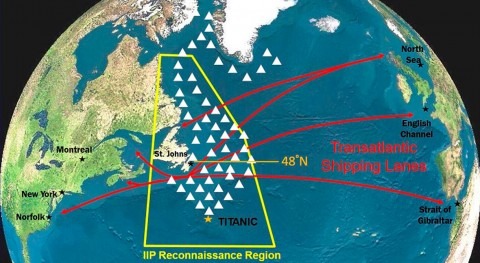Advanced water cleaning techniques are needed to meet United Nations' Sustainable Development Goals (UN SDG) and ensure our water supplies remain sustainable, say University of Sheffield researchers.
With demand for clean water rapidly increasing worldwide, the UN’s SDG is to ensure availability and sustainable management of water and sanitation for all by 2030, but 2.2 billion people still have no access to safe drinking water, and a further 844 million people lack even a basic water service. Adding to this, pressures from the demand for fresh water means we rapidly need to find more effective ways to reuse the water we have.
A new review investigated the benefits of advanced water treatment techniques and highlighted in particular how one of these techniques - photocatalytic water treatment - could help more effectively eliminate micropollutants from our water resources.
Industry, agriculture and domestic wastewater all contribute to water pollution. The micropollutants from these are found in surface, ground and drinking water, and can cause long-term, severe effects on the environment and human health.
Micropollutants are synthetic or man-made in nature and include chemicals from things like prescription medications such as antibiotics, painkillers and hormones, personal care products and toiletries, industrial chemicals, pesticides and herbicides used in farming and many more.
Manasi R. Mulay, co-author of the review from the University of Sheffield’s Grantham Centre for Sustainable Futures and one of our PhD students attending this years UN Climate Change Conference (COP26) in Glasgow, said: ‘’Not being able to remove some of the persistent organic pollutants in wastewater remains a barrier to ensuring clean and safe water for everyone.
“Wastewater is treated by conventional wastewater treatment plants (WWTPs) before being put back into water bodies, but this existing technology cannot completely remove micropollutants, which have even been found supplies from water supplied by drinking water treatment plants, which can also be fed by WWTPs.
“Over time these micropollutants, due to their resistance to degradation processes, can accumulate in water and have potential consequences such as acute and chronic toxicity and hormonal disruptions for marine life, the environment and humans.”
Micropollutants accumulating in water resources can harm aquatic ecosystems, but also have equally worrying impacts on human health, and are believed to be contributing to the rise in antimicrobial resistance (resistance to antibiotic medications) which is becoming an increasingly worrying problem globally.
Conventional water treatment technologies, such as filtration, sedimentation, and coagulation/precipitation and biological treatment techniques do not achieve complete degradation of all harmful pollutants, and often have to be used in combination to achieve a high standard of water quality. They also usually come with issues such as how to dispose of toxic byproducts of the cleaning process.
Researchers from the University of Sheffield are investigating photocatalytic water treatments, a type of advanced oxidation processes (AOP) triggered by a light source, which can attack and break down nonbiodegradable and chemical micropollutants into less complex and less toxic or nontoxic compounds. This process could be highly efficient and can work on multiple micropollutants at the same time.
Manasi Mulay, said: “Using AOPs micro-pollutants can be broken down into simple compounds such as water and carbon dioxide, with the use of photocatalysts. TiO2 (titanium dioxide) based photocatalysis is one of the most promising AOPs being developed, as it offers high efficiency and chemical stability over re-uses in destroying persistent pollutants in water.
“Interesting fact is - though titanium dioxide based photocatalysis has been known since 1972 as the ‘Honda-Fujishima effect’, its development needs to be revisited from an efficient water treatment perspective, with customised treatment for pollutants that exhibit high resistance to degradation.”
“Although it is challenging to address multiple issues such as complete elimination of pollutants, costs, and a low environmental impact with a single technology, using hybrid technologies, or combinations of several advanced oxidation processes are a promising way to more effectively manage our water resources.”
Dr Natalia Martsinovich from the Department of Chemistry, who co-authored the review, said: “Combining benefits of different advanced water treatment techniques could be promising to help achieve the UN’s goal of clean and sustainable water for all by 2030, however at the moment many AOPs are still labour intensive and cost-prohibitive.
“The challenges associated with the advanced oxidation processes include the secondary pollution caused by the intermediates which is of concern”
“We urgently need more resources invested in the research, development, and implementation of advanced wastewater treatment technologies. Along with clear policies that monitor the release of pollutants to the environment, regulate the purification treatment of wastewater and encourage reuse of clean wastewater.
“Only with the support of nations around the world with willingness to protect the natural water resources and provide clean water access to all, can we reap the benefits of advanced water treatment technologies to work towards the Sustainable Development Goal set by the UN and this should be a priority for all attending COP26 next week.”







